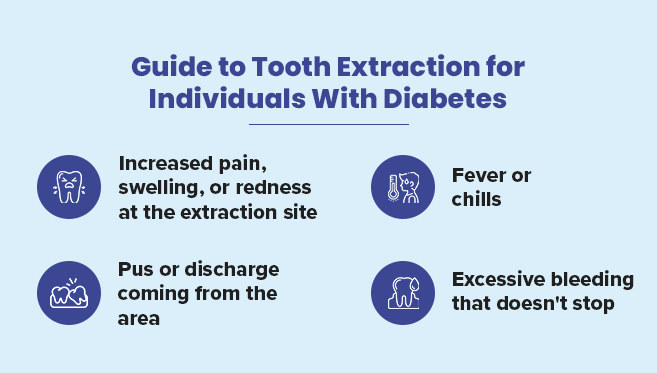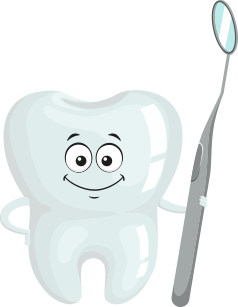Guide to Tooth Extraction for Individuals With Diabetes


Living with diabetes can bring a unique set of challenges, and one of these challenges may involve dental health. Individuals with diabetes have a higher risk of developing various oral health issues, including the need for tooth extraction. In this blog, we’ll provide a comprehensive guide on navigating the process of tooth removal in Chennai for those with diabetes.
Understanding the Link Between Diabetes and Tooth Extraction
Diabetes can have a significant impact on oral health. High blood sugar levels associated with uncontrolled diabetes can weaken the body’s ability to fight off infections, including those in the mouth. This increased susceptibility to infections can lead to a higher risk of gum disease, tooth decay, and other dental issues that may ultimately require tooth extraction.
Additionally, diabetes can impair the body’s ability to heal properly, which can complicate the tooth removal in Chennai and increase the risk of complications. Individuals with diabetes need to maintain strict control over their blood sugar levels to minimize these risks.
Preparing for Tooth Extraction
Before the procedure, individuals with diabetes must work closely with their dental and medical teams to ensure their condition is well-managed. This may involve:
Monitoring Blood Sugar Levels
Consistently monitoring and maintaining healthy blood sugar levels on the days leading up to tooth removal for diabetic patients can help reduce the risk of complications during and after the procedure.
Medication Adjustments
Your dentist may need to coordinate with your primary care physician to adjust any diabetes-related medications, such as insulin, to ensure your blood sugar levels are well-controlled on the day of the extraction.
Timing the Procedure
Scheduling the tooth extraction when your blood sugar levels are most stable can also help minimize the risk of complications.
Communication with Your Dental Team
Be sure to inform your dentist about your diabetes diagnosis, the medications you’re taking, and any other relevant medical information. This will allow your dental team to tailor the treatment plan and provide the best possible care.
The Tooth Extraction Process
During the tooth extraction, your dentist will take additional precautions to ensure the procedure goes smoothly. This may include:
Anesthesia Management
Your dentist may adjust the type or amount of anesthesia used to account for your diabetes and minimize the impact on your blood sugar levels.
Infection Prevention
Extra measures may be taken to prevent infection, such as the use of antibiotics or the application of antiseptic solutions.
Careful Handling
Your dentist will be especially cautious when manipulating the tooth and surrounding tissues to avoid any unnecessary trauma or bleeding.
When should I see my dentist or doctor if I have concerns after the tooth extraction?
You should contact your dental or medical team right away if you experience any signs of infection, such as:


Addressing any issues promptly is important to prevent complications and ensure a smooth recovery. Don’t hesitate to reach out to your healthcare providers with any concerns.
Post-Extraction Care
After the tooth removal for diabetic patients, it’s crucial to follow your dentist’s instructions carefully to promote proper healing and prevent complications. This may include:
Monitoring Blood Sugar Levels
Closely monitor your blood sugar levels on the days following the procedure and make any necessary adjustments to your diabetes management plan.
Maintaining Oral Hygiene
Carefully follow your dentist’s recommendations for oral hygiene, such as gently cleaning the extraction site and avoiding hard or crunchy foods.
Attending Follow-Up Appointments
Keep all scheduled follow-up appointments with your dentist to ensure the extraction site is healing properly and to address any concerns.
Seeking Immediate Medical Attention
Contact your dentist or primary care physician right away if you experience any signs of infection, excessive bleeding, or other concerning symptoms.
By working closely with your dental and medical teams and following their guidance, individuals with diabetes can successfully navigate the tooth extraction process and maintain optimal oral health. So, if you are looking for a dental hospital in Chennai for tooth extraction, Radiant Dental Care is here to help you. We are here to provide the best dental care services to give you the smile that you have ever desired. Book an appointment to learn more.
FAQs
Why are people with diabetes more likely to need tooth extractions?
People with diabetes have a higher risk of developing dental problems like gum disease and tooth decay. This is because high blood sugar levels can weaken the body’s ability to fight off infections in the mouth. Uncontrolled diabetes can also slow down the healing process after dental procedures, increasing the chances of complications.
How can I prepare for a tooth extraction if I have diabetes?
The key is to work closely with your dentist and doctor to make sure your diabetes is well-managed before the procedure. This includes:
- Closely monitoring your blood sugar levels in the days leading up to the extraction
- Informing your dentist about your diabetes and any medications you’re taking
- Potentially adjusting your diabetes medications around the time of the procedure
- Scheduling the extraction when your blood sugar is most stable
Following your dental team’s instructions carefully is crucial to reducing the risk of complications.
What precautions will my dentist take during the tooth extraction?
Your dentist will take extra steps to ensure your safety and comfort during the procedure. This may include:
- Adjusting the anesthesia used to account for your diabetes
- Applying antiseptic solutions to prevent infection
- Being very gentle when removing the tooth to minimize trauma
- Closely monitoring your blood sugar levels throughout the process
All of these measures are aimed at reducing the risks associated with dental work for individuals with diabetes.
How should I care for the extraction site after the procedure?
After the tooth is removed, it’s essential to follow your dentist’s instructions for post-operative care, which may include:
- Gently cleaning the area to keep it free of debris
- Avoiding hard or crunchy foods that could irritate the site
- Closely monitoring your blood sugar levels and making adjustments as needed
- Attending all scheduled follow-up appointments with your dentist
Paying close attention to the extraction site and your overall health is crucial for proper healing.


